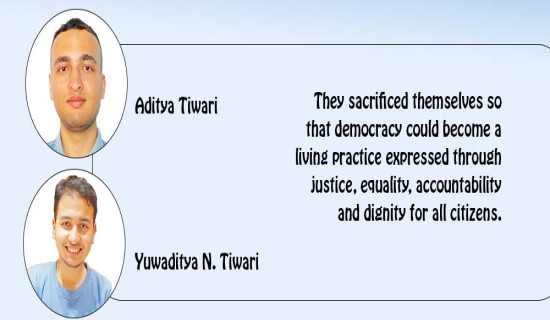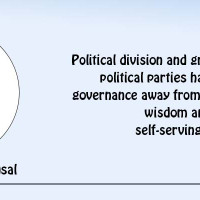- Friday, 30 January 2026
Let Them Get Education
Bini Dahal
Less than eight years are left before the deadline for achieving the Sustainable Development Goals (SDGs) comes to an end. Countries around the globe are working on a very tight schedule to attain the 17 ambitious goals. However, owing to the COVID-19 pandemic and other obstacles, the reality seems to be a far cry.
Among SDGs, Goal No. 4 is concerned with the achievement of quality education. Countries, including Nepal, have set national level indicators to realise the goal. For instance, as per a baseline report of the National Planning Commission (NPC), one of the major targets set by Nepal is ensuring 99.5 per cent net enrollment and completion of primary education and 99 per cent gross enrollment in secondary education by 2030.
Amidst all this, a recent news report about Afghanistan’s current education scenario has grabbed headlines. Under the Taliban rule, the country’s education system has undergone a radical change. Based on its recent decision, Afghanistan’s Ministry of Education has issued a notice stating that female students will not be allowed to have access to the country’s public and private universities. This has resulted in girls and women being prevented from pursuing higher education.
Initially, this was not the case. When the Taliban had taken over the country some 16 months ago, they had promised to allow schoolchildren to continue with their education. The ruling group had also decided to permit women workers to keep working. But those promises were not kept. Young girls were prevented from going to school on the day a new academic session began. And after months, an indefinite ban has been put on university level female students. The rulers have reasoned lack of funds and the need to remodel syllabus in line with the Islamic rules as the factors behind restrictions. Afghanistan’s overall development is highly dependent on educational advancement and active participation of girls and women in education. The Western world and international organisations have been strongly criticising the brutal Taliban government for its regressive moves.
All of this highlights that the country will have the most difficulty in achieving SDG4. As all the goals are very much interlinked with one another, it may be tricky for the nation to meet the other 16 goals as well. Human development is possible only through education. Thus, development of human capital, investment, enrollment and proper participation of different stakeholders are what the need of the hour are. Developing countries like ours and Afghanistan will flourish to a maximum when much focus is laid on educational development.
Girls and women carry aspirations and dreams to do something for their country, for themselves and for other people. By banning education, their ability to dream and spread their wings is impaired. The international community needs to take the Taliban into confidence and remind them of the importance of female education for a nation like Afghanistan. With growing evidence of how countries globally have improved their status through education, its importance cannot be stressed enough. Currently, Afghanistan’s economy is in a critical state.
There is a dire economic and humanitarian issue in the country. Education is one sector that has to be redeemed in order to tackle the existing issues that the Afghani people are facing. An equality-based education system alone could help bring about desired socio-economic changes in that nation.

















